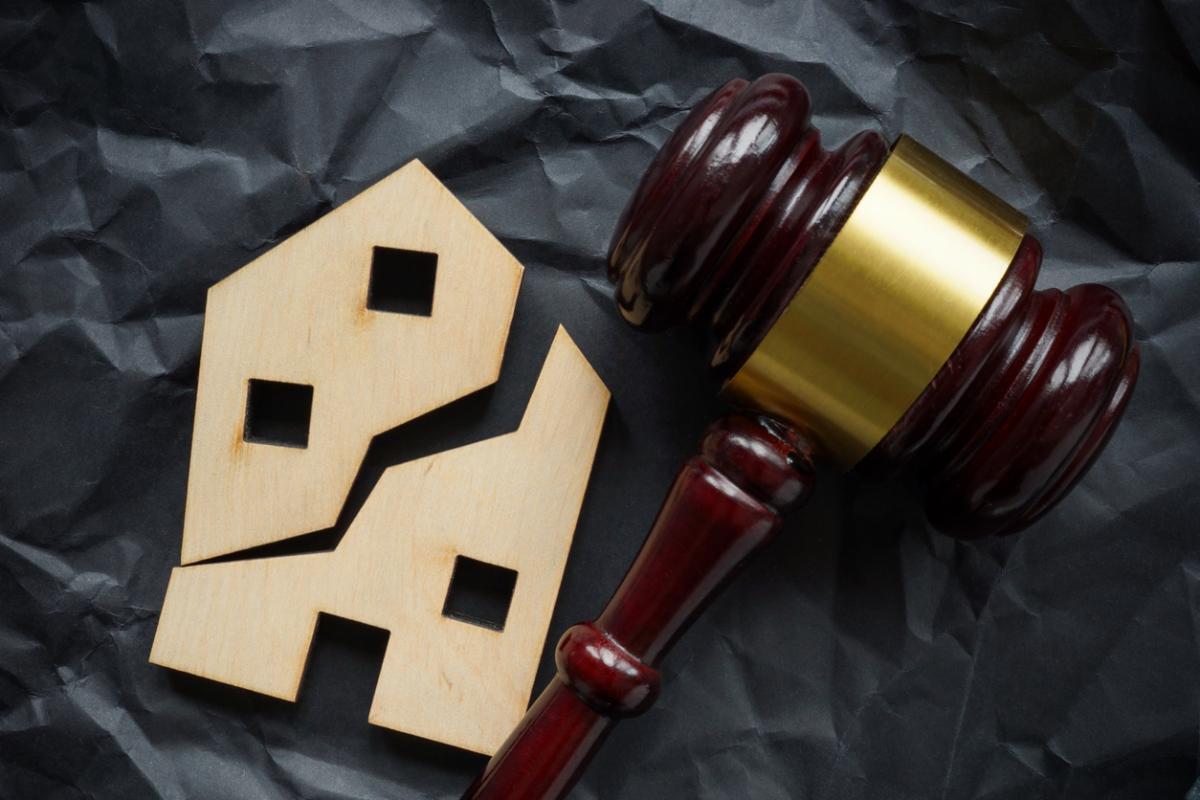Real estate transactions in Scottsdale can be as challenging as they are rewarding—and when real estate disputes arise, they often bring legal complexities that demand careful attention. Whether you’re facing a boundary disagreement, a breach of contract, or a title issue, knowing your rights and understanding the law are essential to protecting your investment. In this blog, we’ll explore six of the most common real estate dispute scenarios in Scottsdale and offer practical guidance on how to resolve them. With the trusted counsel of a seasoned real estate attorney from Provident Law®, you don’t have to face these challenges alone.
-
Boundary and Easement Real Estate Disputes
Boundary disputes may arise if a neighbor claims part of your newly purchased property is theirs. Likewise, you may discover an easement that limits your use of the land. Settling boundary and easement real estate disputes can be tricky, but you can take some steps to try to keep the matter out of court.
In the case of a boundary dispute, you can arrange for a licensed professional to survey the property to clarify its boundaries. An easement issue requires a real estate attorney to review all pertinent title documents and plat records for details about any applicable easements. Once you have the necessary information, a lawyer can help you negotiate or mediate with the other party before escalating the matter to litigation. If necessary, your Arizona real estate lawyer may need to file a quiet title action.
-
Breach of Contract
When a buyer backs out of a deal, a seller fails to disclose defects, or a party doesn’t meet agreed-upon deadlines, a breach of the real estate contract may occur. In this situation, aggrieved parties should consult a Scottsdale real estate lawyer to review the purchase agreement for provisions related to breach of contract and potential remedies. Next, your lawyer can send a formal demand letter to the other party outlining the breach of contract and the proposed resolution. If the contract requires, you may engage in mediation or arbitration of the dispute. Finally, if alternative dispute resolution fails to resolve the breach of contract, a real estate attorney can file a lawsuit on your behalf seeking damages or specific performance of the contract, as appropriate.
-
Title Defects and Ownership Disputes
Title problems can occur when a buyer discovers a lien, forged deed, misrepresented facts, or conflicting ownership claims while purchasing property. This type of issue can jeopardize legal ownership of the property.
In many cases, a pre-closing title search and title insurance policy will bring issues such as these to light. While some parties may be able to work with the title company to cure defects, in other cases, a quiet title action may be necessary. If the issue relates to fraudulent claims to ownership or liens on the property, legal counsel may be necessary to challenge and resolve those issues.
-
Landlord-Tenant Conflicts
Some real estate disputes involve the landlord-tenant relationship. These disputes might involve non-payment of rent, property damages following a tenancy, eviction, or breach of the lease terms.
Whether you are the landlord or the tenant, you should document all communications and lease violations in writing and keep copies of those documents for your records. Arizona has specific laws that relate to the landlord-tenant relationship, and both parties have duties under those laws, such as notice and other procedural requirements.
If you are unable to resolve the matter, you can enlist a real estate attorney and may engage in mediation. If mediation fails, your attorney can assist you in filing a lawsuit against the other party in the appropriate court.
-
Disclosure Failures
In some cases, a seller may fail to disclose material defects like asbestos, foundation issues, or zoning issues. Even if the transaction is intended to be an “as-is” sale, the seller still must disclose any known material defects about the property under Arizona law.
Sellers of residential real estate in Arizona are required to complete and provide prospective buyers with the Seller Property Disclosure Statement (SPDS). However, if buyers discover potentially undisclosed defects, they should enlist real estate inspectors to identify and document the defects. At that point, the buyer can negotiate repairs or compensation for the repairs from the seller. Ultimately, a Scottsdale real estate attorney can help sellers pursue legal action for misrepresentation or fraud in the case of significant damages that they are unable to resolve informally.
-
HOA Disputes
Real estate disputes can arise due to conflicts with your homeowners’ association (HOA) over fees, rule enforcement, or architectural changes. In all cases, you should be aware of and review the HOA’s Covenants, Conditions & Restrictions (CC&Rs), as well as the HOA bylaws, so that you understand your responsibilities. You can also attend HOA meetings to voice your concerns and resolve any issues you are having. If unlawful enforcement occurs, you can challenge those actions in court with the help of experienced legal counsel.
Get Help Resolving Your Scottsdale Real Estate Dispute
Real estate conflicts can be stressful—but you don’t have to face them alone. At Provident Law®, we’re committed to guiding Arizona property owners through even the most complex disputes with clarity, confidence, and strategic advocacy. Whether you’re dealing with a contract issue, title concern, or neighbor disagreement, our experienced legal team is here to protect your interests and help you reach the best possible resolution.
Contact us today at (480) 388-3343 or visit us online to schedule a consultation with a trusted Arizona real estate attorney. Let’s move forward—together.


